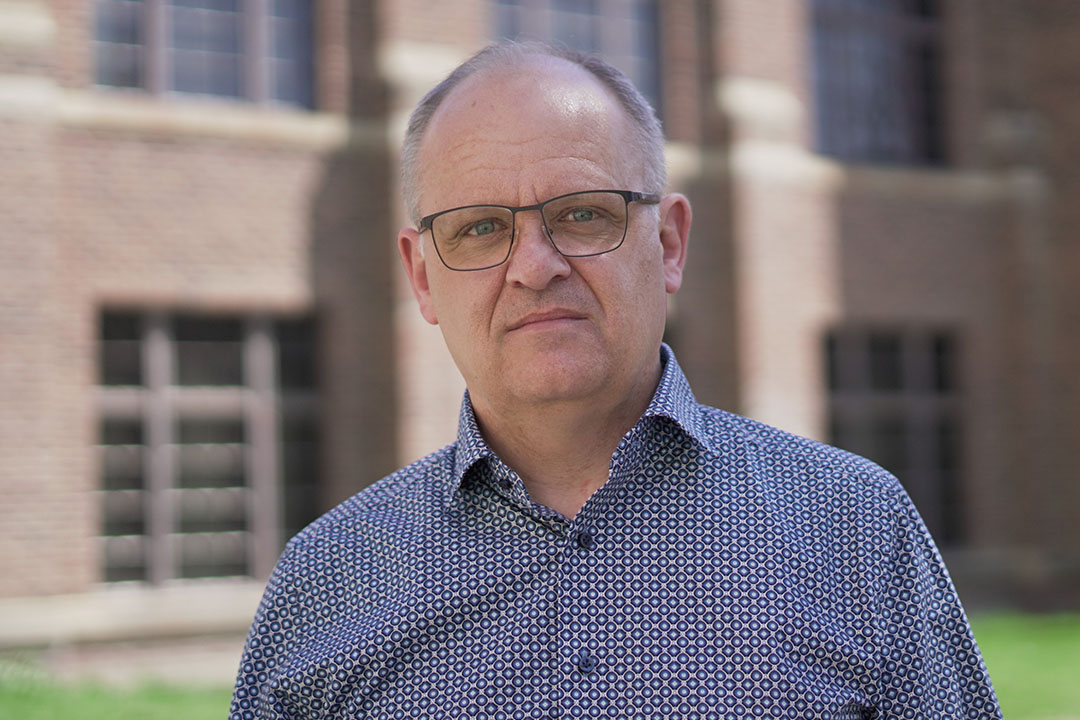
Sumner receives USask’s Master Teacher Award
Dr. David Sumner (PhD) has many talents as an educator: his genuine interest in his students, his enthusiasm, his ability to teach complex subject matter, and of course his chalkboard wizardry.
By Donella HoffmanAll are highlighted in his nomination for the University of Saskatchewan (USask) Master Teacher Award. Sumner will receive the award during the June 10 USask Spring Convocation ceremony at Merlis Belsher Place.
Although Sumner’s contributions to the college’s teaching mission are extensive, there are three points that stand out in his relationship with his students.
He makes complex concepts understandable (and chalk is the secret weapon).
The third- and fourth-year mechanical engineering classes that Sumner teaches—aerodynamics, fluid mechanics and thermodynamics—are not for the faint of heart.
“It’s a different way of thinking from the physics classes you grew up with in high school,” said Sumner. “The fluid mechanics and thermodynamics are not typically seen until you get to engineering. The analysis is new, the equations are new.”
While PowerPoint slides have become a common classroom tool, Sumner is a firm believer in traditional chalkboard teaching. Rather than post a set of notes online, he writes notes on the board during each lecture—coloured chalk is frequently used—and students make their own notes from the board and the lecture. (Taking a quick picture of the content on the board is a no-no.)
“I’m a believer in note-taking, being able to synthesize things and deciding what’s important to write down,” said Sumner. “It’s a skill that’s important for an engineer. You’re in a meeting, you’re in the field, you can’t write everything down.”
“He is legendary for his chalkboard artistry and crystal-clear explanations of complex engineering topics,” wrote Jim Bugg, head of the Department of Mechanical Engineering, in Sumner’s citation for the award. “He weaves a story in the classroom that engages and enlightens students and infects them with his enthusiasm for the topic.”
Student evaluations confirm this.
“I might be odd in the sense that I love taking notes in Professor Sumner’s class,” read one student evaluation. “I understand and remember things better when I write them down.”
He is a role model.
For the past five years or so, Sumner has taught the capstone class in his department, in which students work through the fall and winter terms on an engineering design project for an external client. Along with emphasizing problem-solving via the design, Sumner said he also tries to convey the importance of ethics, professionalism, communication, teamwork, safety and sustainability.
“The fourth years are going to be engineers-in-training in a matter of months. We should be practising our code of ethics as engineers here in the college.”
Sumner, who grew up in Montreal, joined the college in 1999 after earning his bachelor’s degree in mechanical engineering at McGill University, taking his master’s at the University of Waterloo and returning to McGill for his PhD.
“He is keenly aware that service to the public is paramount in his role as a professional engineer and this makes him an outstanding model for his students and colleagues,” Bugg stated.
The Master Teacher Award is not the first recognition Sumner has received for his teaching. In 2021 he won the Saskatoon Engineering Society (SES) Educator of the Year Award and he was the 2013 winner of the Provost’s Award for Outstanding Teaching in the College of Engineering.
He cares about his students.
“Dr. Sumner is known for treating students respectfully, with many noting his approachability and his genuine interest in their success,” Bugg added. “He creates a classroom atmosphere that encourages and accommodates students with diverse backgrounds.”
While some of Sumner’s classes can have 80-plus students, he works to learn a bit about each student. What’s their hometown? Is that jersey they’re wearing from their favourite team?
“That’s one way to be approachable,” he said. “Just get to know who they are. They’re not a number, they’re a student, right? They’re a person.”
With each new term, Sumner appreciates the potential in each class and delights in seeing students build their careers.
“It’s so rewarding to see where they end up. They’re students here, but 10 years later they’re a manager, or they own a company. It’s amazing where they end up.”

